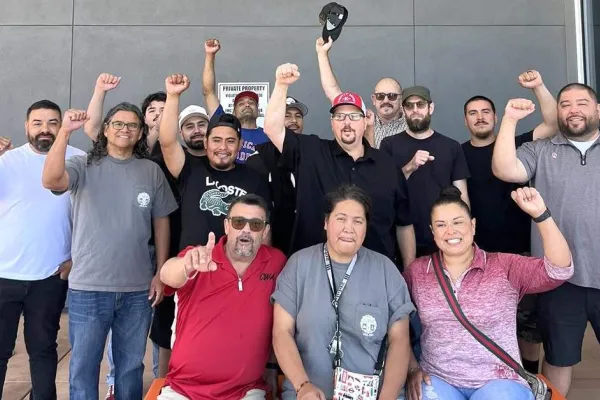CWA Applauds Nevada Government for Extending Collective Bargaining Rights to State Employees
Last June, Nevada Governor Steve Sisolak signed the first bill in the state's history to allow state employees, including its public safety employees, the opportunity to collectively bargain with the state for wages, benefits and working conditions -- a right that has been enjoyed by most County and Municipal employees in the Nevada for decades.
CWA members from CWA's Nevada law enforcement affiliates, the Nevada Association of Public Safety Officers (NAPSO) and the Nevada State Law Enforcement Officers Association (NSLEOA) were at the forefront of getting the language written and amended, lobbying its passage through the state Assembly and Senate Houses, and getting it onto the Governor's desk.
"Collective bargaining for our state employees is historic," said Rick McCann, Executive Director of NAPSO. "CWA and NAPSO have bargained tens of millions of dollars in contract wages and benefits for our city and county law enforcement members over the past years, while our state members have toiled in 'collective begging' rather than 'collective bargaining' with the state. Now, we have the opportunity to help our state brothers and sisters regain what has been lost to them without collective bargaining."
NAPSO, NSLEOA and CWA, all members of the Nevada State AFL-CIO, have been designated to represent all of the state's Category 2 law enforcement officers, including such groups as the state's Attorney General Investigators, Secretary of State Investigators, Nevada Transportation Authority, Taxicab Authority, DMV Criminal Enforcement, Youth Parole Officers, State Park Rangers, and Department of Wildlife.
“CWA District 9 is proud to welcome these members to our union,” said Frank Arce, District 9 Vice President. “All workers deserve strong collective bargaining rights, and CWA members are grateful to Governor Sisolak for taking action to help working people in Nevada.”
Collective bargaining rights include issues that law enforcement employees are concerned about: base wages, shift differentials, specialty pay, holiday pay, paid leaves of absence, health benefits, disciplinary and grievance procedures, lunch and rest periods, safety and health issues, clothing allowances, shift arrangements and working hours, on-duty and off-duty injury issues, union leave time, transfers, and many others.
We Need Reliable Internet Service and Good Jobs - Sign the Petition
Pittsburgh Post-Gazette Faces Contempt Charges in Losing Battle to Deny Strikers’ Health Care



